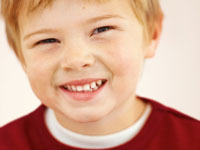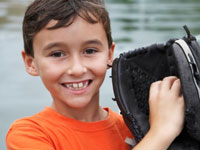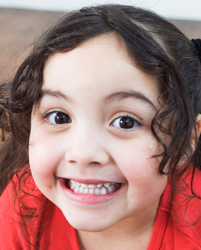Local Dental Care - Pennsylvania Pediatric Dentists Children
Pacifico Dental Care
Appointments: (610) 588-2722

Michael Pacifico D.M.D.
Pacifico Dental Care
48 North 3rd Street
Bangor, PA 18013






Relaxation dentistry with Bangor area dentist Dr. Michael Pacifico means your dental treatments can be done quickly. You'll be lightly sedated and you'll feel little or no discomfort.
You won't have to tolerate feeling uncomfortable or hide your smile because you need dental work. You'll feel at ease during your dental appointment, and glad that you're taking care of your oral health.
Bangor area braces dentist Dr. Michael Pacifico can provide miniature ceramic and removable braces for your child. At Pacifico Dental Care, when we prescribe your child with the treatment of braces, we offer several types of braces for you and your child to choose from.
For natural-looking prosthodontics, Bangor area dentures dentist Michael Pacifico, D.M.D. has extensive experience. Our team uses quality materials and current techniques to deliver the results you want.
We'll assess your situation and design a treatment plan to replace your missing teeth. You'll be able to smile again with confidence and ease.
Bangor area teeth whitening dentist Michael Pacifico, D.M.D. loves to help brides, grooms and wedding party members look their very best for that special day. We offer a Wedding Day Special for tooth whitening that will provide you with the dramatic results you desire.
You'll have a beautiful, dazzling smile to celebrate your wedding day. And your wedding pictures will show off your sparkling white teeth for years to come!
Bangor area Invisalign® dentist Michael Pacifico, D.M.D. is happy to provide your new clear braces. At Pacifico Dental Care, we want you to have the straight teeth and beautiful smile you desire.
We're happy to assess your needs create your individual treatment plan for braces. You may be able to have your new Invisalign® aligners sooner than you think!
More Children's Dentists in the Bangor, PA Area Near You
Charles Wisniewski, D.D.S. DMD PC
722 Huntingdon Pike
Jenkintown, PA, 19046
(215) 379-2060
Hodges, Eric N D.D.S.
3900 City Ave # D123
Philadelphia, PA, 19131-2927
Doctor - Activate Your Free 1stPediatricDentist Directory Listing
Soffin, Craig D.D.S.
491 Allendale Rd # 206
King Of Prussia, PA, 19406-1431
Hand, Ronald E D.D.S.
20399 Route 19 # 100
Cranberry Twp, PA, 16066-6135



